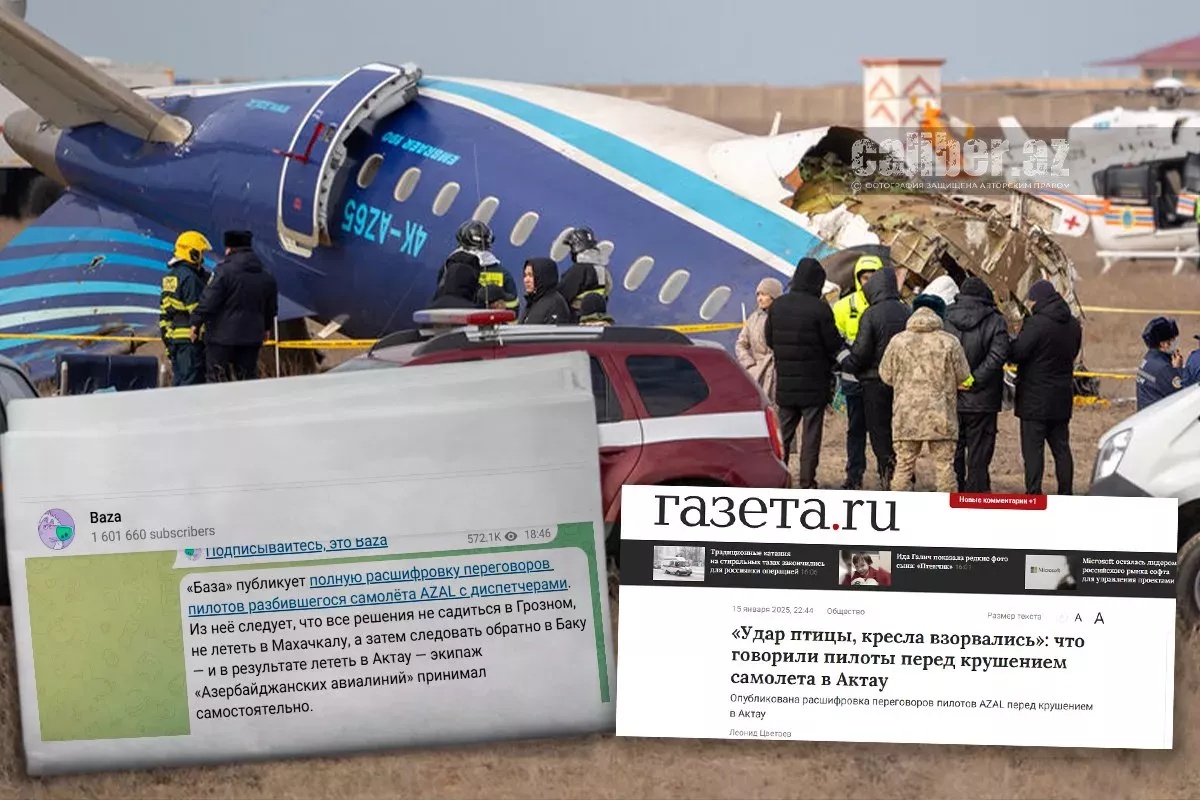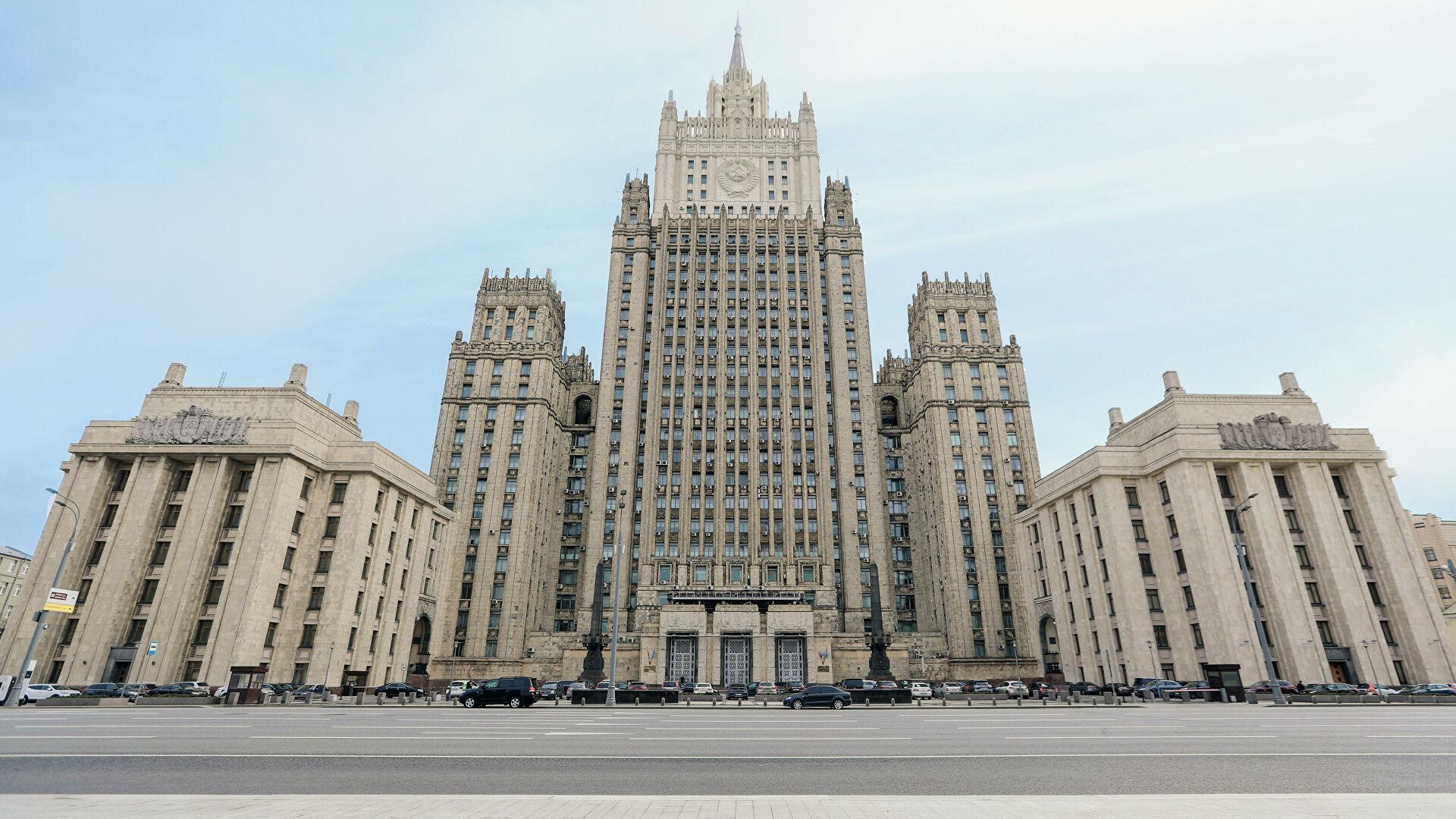Moscow’s diplomatic game on people’s nerves and fates When cynicism becomes policy
Apparently, the official structures of the Russian Federation, judging by their cynically charged statements, have collectively decided to push relations between Baku and Moscow to what can be called a point of no return.
For instance, during a briefing on the sidelines of the Eastern Economic Forum, the official representative of the Russian Foreign Ministry, Maria Zakharova, stated that “the release of 13 Russian citizens currently held in Azerbaijan could become an important step towards normalising relations between Moscow and Baku,” adding that this issue was discussed in detail on August 22 in Astrakhan during the meetings of the Russian-Azerbaijani Intergovernmental Commission on Economic Cooperation.
However, Zakharova did not mention the downed Azerbaijani plane, nor the atrocities committed by law enforcement in Yekaterinburg. In this context, the “fresh” statement by the Russian diplomat understandably provokes bewilderment in Azerbaijani society. To avoid being merely rhetorical, let us outline the chronology of facts that, taken together, have caused the current tension in relations between the two countries.
It all began on December 25, 2024, when Russian air defence shot down an Azerbaijani Airlines (AZAL) aircraft operating a Baku–Grozny flight. Azerbaijan, relying on the facts, accused the Russian side of concealing the real causes of the catastrophe and deliberately spreading disinformation.

In February 2025, cyberattacks targeted Azerbaijani media, which Baku reasonably suspected were carried out by Russian hacker groups closely linked to state structures.
Then, in June 2025, a high-profile incident occurred in Yekaterinburg: during large-scale raids on the Azerbaijani diaspora, two Azerbaijanis were brutally killed. Baku responded immediately. The Ministry of Foreign Affairs of Azerbaijan issued a statement regarding the actions of Russia’s FSB against Azerbaijanis in Yekaterinburg, and the temporary chargé d’affaires of Russia was summoned to the Azerbaijani MFA, where a strong protest was lodged over the events in the Ural city.
To date, a comprehensive set of anti-Azerbaijani measures, orchestrated by the Kremlin and carried out by the FSB, the Investigative Committee, and the Foreign Ministry, continues. These include a large-scale campaign in Russian media to portray Azerbaijan as an enemy, repressions and deportations, and the seizure of businesses owned by Azerbaijanis living in Russia. There is no end in sight.
Regarding the downed AZAL civilian aircraft, despite all the statements from Russian officials, the Russian Federation has still not paid compensation, issued an apology for the incident, or shown urgency in punishing those responsible for this crime. In a recent interview with Al Arabiya, the President of Azerbaijan, Ilham Aliyev, reiterated that Russia must take responsibility for the civilian aircraft shot down over Grozny, and those responsible for this tragedy must be held accountable. However, judging by the statement from the Russian Foreign Ministry, Moscow seems to be attempting to substitute the concept of compensation with insurance, which is categorically unacceptable.
"Since February 2025, the Russian insurance company 'AlfaStrakhovanie' has been making insurance payments related to the crash of the Azerbaijan Airlines aircraft (Baku–Grozny flight). The Azerbaijani airline has been paid the full insured value of the aircraft — 1.003 billion rubles (over $12 million). Claims related to injuries and the deaths of 46 of the 62 passengers on the flight have been fully settled. To date, insurance payments to the affected passengers and the relatives of the deceased have amounted to 358.4 million rubles (over $4 million)," the Russian Foreign Ministry statement said.

In this context, it should be noted that Baku fully understands the difference between insurance and compensation, and any such manoeuvre by Moscow on this sensitive issue will not succeed.
As is well known, insurance payments are governed by the 1999 Montreal Convention and are purely a technical procedure. In other words, in this case, we are not dealing with an admission of guilt, but merely with the fulfilment of the insurer’s obligations. Compensation, on the other hand, is enshrined in the UN General Assembly resolution “Responsibility of States for Internationally Wrongful Acts” of 2001, which represents a measure of accountability.
It follows that the statement by the Russian Foreign Ministry is nothing more than another attempt by Moscow to avoid responsibility, which was reflected in the Azerbaijani Foreign Ministry’s response. As noted by the MFA of Azerbaijan, insurance payments to AZAL and its passengers from an insurance company registered in Russia, and Azerbaijan’s demands for compensation from the Russian government in connection with the downing of the aircraft, are entirely different concepts, and equating them is fundamentally incorrect. The Ministry also stressed the inaccuracy of the words of the Russian Foreign Ministry spokesperson, who presented the July arrest in Azerbaijan of 13 Russian citizens as a reason for the deterioration of Azerbaijani–Russian relations and cited their release as a condition for improving them.
Thus, Azerbaijan has once again made it clear to Russia that on issues of fundamental importance to its national interests, Baku’s position cannot under any circumstances change. The Russian side should henceforth not underestimate this crucial aspect.








